Explore the Top 10 Aquaculture Trends in 2025
Which technologies are impacting the aquaculture industries? In this data-driven industry research on 934 aquaculture startups & scaleups, you get insights into technology solutions including shrimp farming, fish therapeutics, marine genetics, precision aquaculture & more!
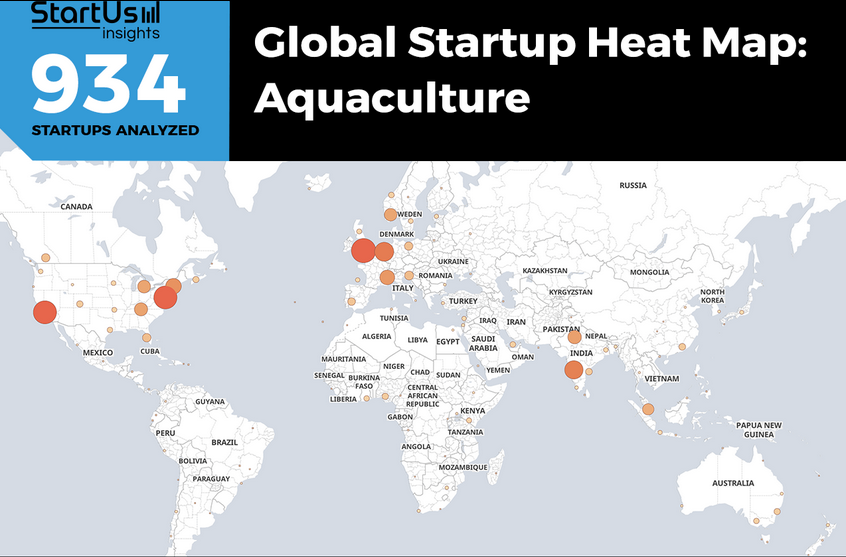
The global demand for seafood and the need for sustainable, efficient production drive the aquaculture industry to adopt new technologies and processes. Innovations automating traditional farming methods, boosting productivity, enhancing environmental sustainability, and improving fish welfare and product quality now advance the industry. This data-driven research provides an overview of the top 10 aquaculture trends, including recirculating aquaculture systems, smart farming techniques, and advancements in fish genetics and selective breeding. Discover the top technologies and pioneering startups that are transforming the aquaculture industry.
This article was last updated in July 2024.
Innovation Map outlines the Top 10 Trends in Aquaculture & 20 Promising Startups
For this in-depth research on the Top 10 Aquaculture Trends & Startups, we analyzed a sample of 934 global startups & scaleups. This data-driven research provides innovation intelligence that helps you improve strategic decision-making by giving you an overview of emerging technologies in the aquaculture industry. In the Aquaculture Innovation Map below, you get a comprehensive overview of the innovation trends & startups that impact your company.
Want to explore all Aquaculture innovations & trends?
These insights are derived by working with our Big Data & Artificial Intelligence-powered StartUs Insights Discovery Platform, covering 4.7M+ startups & scaleups globally. As the world’s largest resource for data on emerging companies, the SaaS platform enables you to identify relevant technologies and industry trends quickly & exhaustively.
Tree Map reveals the Impact of the Top 10 Aquaculture Trends
Based on the Aquaculture Innovation Map, the Tree Map below illustrates the impact of the top trends in aquaculture in 2023. Urban aquaculture solutions enable fish cultivation inside the cities, and shrimp farming promotes technology-driven best farming practices. Wastewater management solutions ensure water quality and improve the well-being of aquatic creatures. Data-driven fish breeding speeds up the breeding process, while Recirculating Aquaculture Systems (RAS) and precision aquaculture trends advance the controlled fish environment and support data-driven decision-making. To overcome concerns about overfishing and abuse, emerging aquaculture companies also develop alternatives to sea-sourced food. Marine genetics boosts the fish’s health and longevity, while fish therapeutics detect early-stage diseases and recover marine animals. Finally, smart feeding solutions complete the top 10 aquaculture trends and automate the feeding process while also making it more nutritious.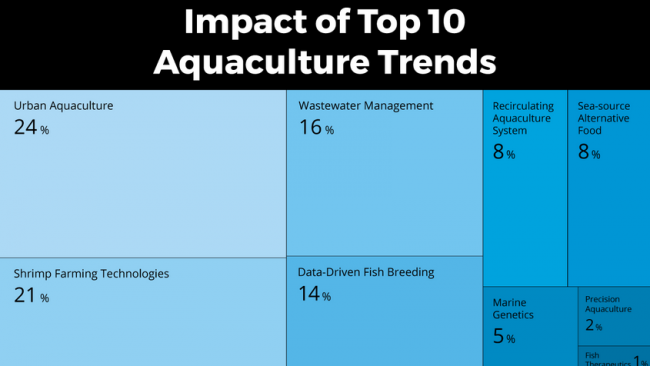
Global Startup Heat Map covers 934 Aquaculture Startups & Scaleups
The Global Startup Heat Map below highlights the global distribution of the 934 exemplary startups & scaleups that we analyzed for this research. Created through the StartUs Insights Discovery Platform, the Heat Map reveals high startup activity in the US and Western Europe, followed by India and Singapore. Below, you get to meet 20 out of these 934 promising startups & scaleups as well as the solutions they develop. These aquaculture startups are hand-picked based on criteria such as founding year, location, funding raised & more. Depending on your specific needs, your top picks might look entirely different.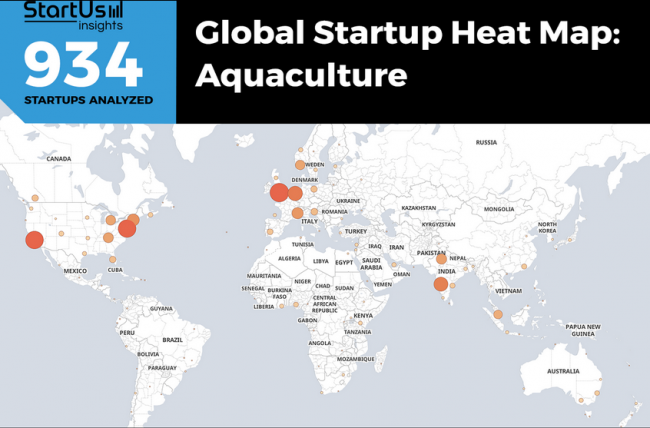
Top 10 Aquaculture Trends & Innovations in 2025
1. Urban Aquaculture
With growing populations and urbanization, the demand for seafood is increasing. Urban areas with a higher population density implement emerging technologies to optimize ecological and space resources. For example, startups and scaleups design solutions for fish, mollusks, and crustaceans cultivation in controlled environments within modern cities. Innovations include vertical farming systems to grow fish and other aquatic species within limited space. Other innovations feature hydroponics and aquaponics to create a symbiotic relationship with plants and maximize resources. Companies also focus on enhancing food resilience and security. This aquaculture trend supports businesses to reduce their carbon footprint and optimize land and water use in urban areas.
Vertical Oceans develops Aqua Towers
Singaporean startup Vertical Oceans grow sustainable seafood in urban aqua towers inside cities. Its smart algorithms-based oceanic ecosystem incubates shrimp, fish, and algae without chemicals, emissions, and antibiotics all over the year. Moreover, it has low carbon water usage and food miles. While being location agnostic, the solution allows urban citizens to consume clean and fresh seafood without limitations.
Royal Caridea offers High-Tech Shrimp Farming
US-based startup Royal Caridea develops advanced modular aquaculture systems to optimize shrimp production and minimize costs. Its GEN 2 container components consist of modular sub-components housed in intermodal containers, which enable rapid onsite assembly and vertical stacking. Each container includes three raceways with computerized feedback loops to monitor and control water quality and physical conditions. These production sub-units operate independently, feature built-in sensors, aeration connections, and systems for detritus removal and shrimp harvesting. The modular design facilitates efficient plant construction for raceway-equipped containers to be pre-fabricated and shipped to the site. This system supports the multi-phasic approach to biomass control for consistent shrimp growth.
2. Shrimp Farming
With the increasing demand for shrimp, farmers look for solutions to optimize seafood farming and ensure a consistent supply throughout the year. To achieve this, startups develop smart technologies that help to grow shrimps in a controlled space. They implement biosecurity measures to prevent the introduction and spread of diseases. Using the IoT and sensor technology, companies are now optimizing feeding practices and closely monitoring shrimp behavior, growth, and health. Other emerging technologies such as big data and modeling are providing insights into optimal harvest times and other patterns. Such tools help farm owners improve seafood farming and make data-driven decisions.
Aquapurna offers Advanced Land-based Shrimp Farming
German startup aquapurna uses tech-driven and automated methods for land-based shrimp farming. The startup’s Smart Reef System mimics nature itself and therefore increases the well-being of shrimp while achieving a high, predictable, and outstanding yield. Moreover, the system does not allow for shrimp to be handled manually. This allows them to remain untouched and stress-free. The solution also automates the analysis of parameters and imagery that increase understanding of the animal.
Sincere Aqua enables Precision Shrimp Farming
Dutch startup Sincera Aqua provides remote biomass insights. The system counts shrimps to ensure accurate pond stocking, monitors biomass in real time, and optimizes feed distribution to improve feed conversion ratios. In addition, it indicates potential health issues or disease outbreaks to ensure the well-being of shrimps. The solution supports data-driven decision-making in shrimp farming.
3. Wastewater Management
For the cultivation of aquatic organisms, the quality of water is vital. Startups and scaleups bring innovations in aquaculture wastewater management by utilizing emerging technologies. Real-time water quality monitoring systems continuously monitor key parameters such as temperature, dissolved oxygen levels, pH, turbidity, and nutrient concentrations to improve the well-being of fish. Remote sensing and satellite imagery also capture data and offer an overview of water bodies. They provide information about factors like watercolor, turbidity, and algae blooms. Other advanced analytical technologies identify correlations, trends, and anomalies and provide valuable insights into water quality dynamics, predicting potential risks and optimizing management practices.
Shenzhen Meixing Intelligent controls Fishing Ponds Water Quality
Chinese startup Shenzhen Meixing Intelligent understand the main water quality parameters of the pond and regulates them. Its product Monitoring Star automatically detects and records the water quality of the water body, and transmits it to the farmers’ mobile phones in real-time. Additionally, it timely warns of abnormal changes through trend data analysis. The solution monitors the water quality and improves the life of aquatic organisms.
AquaSignum offers Real-time Microbial Activity Sensors
Canadian startup AquaSignum develops real-time microbial activity sensors that provide actionable data for the aquatic environment. It lets business owners know when water quality is impaired, and when it is back to normal. Moreover, the biosensor uses the native microbial population, so it never needs to be cleaned and is unaffected by fouling. Additionally, it generates data points per hour and stores the data in the cloud. The solution helps optimize aquaculture processes and monitor for imbalances.
4. Data-Driven Fish Breeding
Fish breeding is crucial for further aquatic organisms cultivation. Fish owners aim to produce healthier, more productive, and resilient fish populations. To achieve this, startups develop solutions that enhance breeding value estimation, increase genetic gain, and reduce breeding cycles. The data-driven approach helps predict the breeding potential of fish at an early stage while breeders make informed decisions about mating pairs to optimize genetic diversity and improve the quality of fish populations. Another impactful sub-trend is cell-based fish production which is tailored to meet consumer preferences while reducing the environmental impact associated with conventional fishing or aquaculture practices.
Regional Fish realizes High-speed Breeding
Japanese startup Regional Fish develops a high-speed breeding technology that promotes natural changes in aqua-products from the DNA level in a super-short time. This genome editing technique deactivates a targeted gene function, which is safer than traditional selective breeding where mutation occurs at random. It doesn’t create artificial traits by introducing foreign genes like GMOs. The solution improves the breeding speed process in aqua products from 30 years to only 2-3 years.
Sea2Cell offers Sustainable Cell-based Fish
Israeli startup Sea2Cell develops a technology to produce cultivated fish meat. The startup grows fish cells in huge tanks and makes chunks of fish out of them. The cells differentiate according to a specifically designed signal, reducing overall costs and enabling efficient scaling up. The solution preserves nature and saves in-danger fish species by replacing wild-caught fish.
5. Recirculating Aquaculture System
Farming of aquatic organisms has seen significant advancements over the years. Recently, has the need for a controlled and efficient environment for fish and shellfish production increased. Therefore, startups are focusing on developing innovations that minimize the environmental impact and maximize production yields. For instance, startups and companies are working on advancing land-based aquaculture systems using AI and IoT. They enable the production of high-density fish populations in a controlled environment. Other innovations in RAS include foam fractionation, biofiltration, and UV sterilization technologies, and machine learning algorithms to analyze large datasets generated by RAS operations. This trend aims to find sustainable solutions for protecting fish populations and their habitats.
Aqualita Ecotechnology develops a Recirculating Aquaculture System (RAS)
Singaporean startup Aqualita Ecotechnology develops decentralized modular recirculating aquaculture systems for urban fish farming. The system allows for pre-fabricated, stackable units that create highly scalable fish production facilities within urban centers. DeMAQ, a 20ft high cube container, operates standalone or connects to a smart control center, optimizing farming protocols for various fish species. ACRAS provides continuous seafood production throughout the cycle, ensuring a consistent supply. ACRAS PLUS combines expertise in fish genetics, nutrition, and aquaculture economics to provide value and risk mitigation. This technology ensures sustainable, clean, and safe conditions for fish growth with minimal inputs.
Solar Oyster produces Floating Shellfish Systems
US-based startup Solar Oyster offers floating shellfish production systems. Self-contained oyster cultivation systems have solar panels that provide sufficient power for automated ladder rotation and other ancillary systems. The system includes advanced monitoring and control mechanisms to ensure optimal water quality, temperature, and nutrient levels. The solution helps to meet the growing demand for cultivated oysters while promoting the transition to renewable energy sources.
6. Sea-Source Alternative Food
As the global demand for seafood continues to rise, concerns about overfishing, ecosystem degradation, and the sustainability of traditional fishing practices have become increasingly prevalent. In response to these challenges, startups and emerging companies develop sustainable seafood alternatives using ingredients such as seaweed, algae, legumes, and innovative plant proteins to mimic the original seafood. Some seafood alternatives innovations include plant-based fish fillets and crab cakes to vegan shrimp and scallops. Moreover, they provide a wide range of essential nutrients, including protein, omega-3 fatty acids, vitamins, and minerals. Other areas that startups work on include food processing techniques such as extrusion, fermentation, and high-pressure processing to transform plant-based ingredients into seafood-like textures.
Seatrients produces Sea Moss Drinks
Swedish startup Seatrients utilizes Caribbean islands sourced sea moss algae to produce sustainable immune booster and fertility enhancer drinks. They have nutrients that are commonly needed to enrich the diets, such as iron, zinc, omega fatty acids, and B vitamins. The solution encourages the responsible farming of algae to further stimulate the biodiversity of our oceans.
Seabloom produces Seaweed-based Tuna
UK-based startup Seabloom manufactures plant-based tuna by cultivating a variety of seaweed species in controlled marine environments. It utilizes cultivation systems that allow for precise monitoring and control of water quality, nutrient levels, and growth conditions. This plant-based superfood has a nutritious punch of healthy protein, omega-3s, vitamins, and minerals. The solution besides being a sustainable alternative to marine organisms, reduces overfishing and the amount of discarded plastic fishing nets.
7. Precision Aquaculture
Precision aquaculture transforms traditional fish cultivation by utilizing advanced technologies and data-driven systems. Sensors, automation, AI, and data analytics enable real-time monitoring and precise control. Some of the solutions that startups are working on include sea robots that automate routine tasks such as feeding, water quality management, and waste removal. Imaging and computer vision technologies count fish, estimate size, and assess health in precision aquaculture. Other innovations are focusing on operations optimization and farm management. AI-powered solutions provide farmers with predictive analytics and suggestions on how to act more efficiently, for example, by improving feed strategies. Precision aquaculture ensures sustainable practices, enables informed decision-making, and enhances fish welfare.
Eseidon develops First Smart Sorting Device
German startup Eseidon designs AquaDetector, a smart sorting device for marine species. It consists of three units that ensure accurate analysis and sorting of aquatic organisms of all sizes. The device uses artificial intelligence, real-time image recognition, and cloud computing to detect fish size, deformation, sex, diseases, and other aquatic species. The solution improves stock management and supports decision-making based on the collected data.
OnDeck Fisheries enables AI-based Fisheries Monitoring
Canadian startup OnDeck Fisheries automates commercial fisheries by creating AI-based fisheries monitoring that detects catch. Its AI-powered tracking model counts and identifies what’s being caught at sea in real-time. This monitoring solution automates the video review process and ensures cost-effective compliance by fishermen, which is ultimately changing the way they manage and conserve marine resources globally.
8. Marine Genetics
Marine genetics focuses on the genetic diversity, adaptation, and evolutionary processes of marine organisms. To keep improving the survival diversity in the unpredictable marine environment, startups are developing technologies that help aquatic organisms to adapt to extreme temperatures, high salinity, and varying levels of nutrients. Advanced sequencing technologies and bioinformatics analysis help study the genetic diversity of fish species and provide genetic insights for breeding programs. Emerging marine genetics companies are also working on fish genome modification, targeting growth hormone genes. By targeting specific genes, they aim to enhance disease resistance, growth rate, and feed conversion efficiency in farmed salmon.
Azul Bio creates Coral Microbiome Boosters (CMBs)
US-based startup Azul Bio develops scalable microbiome-based solutions to enhance ocean health and sustainability. Leveraging natural microbial communities, the startup creates custom environmental microbiome boosters that address climate change, marine diseases, and pollution. Its coral microbiome boosters, such as Coral Shield | Heat, help reduce coral bleaching and mortality by using endemic microbial species, ensuring better treatment retention. These solutions applies to both coral nurseries and natural reefs, facilitating large-scale marine restoration. The platform supports environmental restoration projects, aquaculture, and industry by improving marine environment productivity and health.
Sono Biosciences offers Fish Genome Editing
Singaporean startup Sono Biosciences develops a fish cell culture media and fish cell lines for cultured fish. They eliminate animal-sourced serum and are safe to consume as food, proliferate and differentiate efficiently at industrial scales. The solution lowers the cost of cultured fish production and ensures food safety and quality control.
9. Fish Therapeutics
Fish therapeutics focuses on improving the health of fish species through emerging technologies. This trend covers innovations in aquatic organisms’ health management. Emerging companies are developing advanced diagnostic technologies to assess the health of fish populations. Techniques such as polymerase chain reaction (PCR), real-time PCR, and DNA microarrays enable rapid and accurate identification of pathogens, including bacteria, viruses, and parasites. Another innovation is in vaccination technologies, including recombinant protein vaccines and nanoparticle-based delivery systems. They enhance fish immune responses and provide long-lasting protection against pathogens. Additionally, innovative formulations of probiotics, including encapsulation techniques improved the viability of the beneficial bacteria in the fish digestive tract.
MariHealth Solutions provides Aquaculture Health Management
South African startup MariHealth Solutions develops aquaculture health management technologies. Its biomarker-based platform offers insights into the health of farmed fish and shellfish. In addition, the startup scales a bacterial probiotic that improves the growth rate and disease resistance of farmed abalone and develops diagnostics and therapeutics for the identification and treatment of infectious diseases in farmed fish. The solution helps to assess the health and metabolism of aquatic species and improve them.
GreenSage develops Aquaculture Coconut Prebiotics
Canadian startup GreenSage designs prebiotics from coconut residue that improves marine animals’ health. This natural, sustainable prebiotic supports the digestive and immune systems, promoting health in salmon and shrimp aquaculture. It also supports the growth of specific beneficial bacteria, including various strains of Lactobacillus spp. and Bifidobacteria spp. The sustainable solution ensures the antimicrobial resistance level of fish and seafood.
10. Smart Feeding
Due to the need to optimize fish nutrition, enhance growth, and improve feed efficiency, the smart feeding trend has been growing. Automated feeding systems utilize sensors, cameras, and advanced algorithms to monitor fish behavior, feed intake, and feeding patterns. Another upcoming sub-trend is a precision feeding technique that enables precise delivery of feed based on individual fish requirements. These technologies utilize real-time data, including fish size, weight, behavior, and environmental conditions, to adjust feed quantities and compositions. Other solutions that startups are working on include nutrigenomics and functional feeds that underlie fish nutrition and aid in formulating optimized diets.
Biofeyn offers Salomon Nutrient Delivery
Biofeyn develops new forms of nutrient delivery to improve efficiencies in salmon farming and other sustainable nutrition markets. The Biofeyn platform of customizable ingredients delivers precision aquaculture. It optimizes existing ingredients that have already been proven safe and environmentally friendly. The solution addresses aquaculture sustainability issues, reduces waste, and promotes the use of sustainable feed ingredients.
Ittinsect produces Biomanufactured Aquaculture Feed
Italian startup Ittinsect manufactures a high-performance aquaculture feed from agri-food by-products. It uses patent-pending biotech treatment of novel raw ingredients including insects and microalgae that improves the bioavailability up to eight times. Moreover, this fish feed has zero impact on the marine environment and reduces the total emissions of the aquaculture value chain. The solution is more digestible, creates a stronger immune system, and has a lower risk of digestive system inflammation than one fed with traditional feed.
Discover all Aquaculture Trends, Technologies & Startups
The aquaculture industry is moving towards more sustainable practices. Emerging technologies, such as machine learning and IoT will play a major role in fish farming automation and organism data analytics. Other advancements continue enabling precise monitoring and management to improve fish genes. Emerging companies and startups also optimize resource utilization, reduce the environmental impacts of the industry, and ensure the long-term viability of aquaculture. The aquaculture trends & companies outlined in this report only scratch the surface of trends that we identified during our data-driven innovation & startup scouting process. Identifying new opportunities & emerging technologies to implement into your business goes a long way in gaining a competitive advantage.



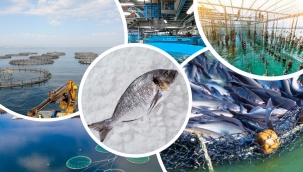

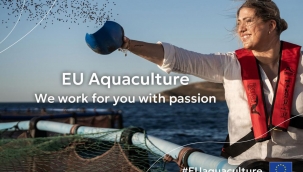

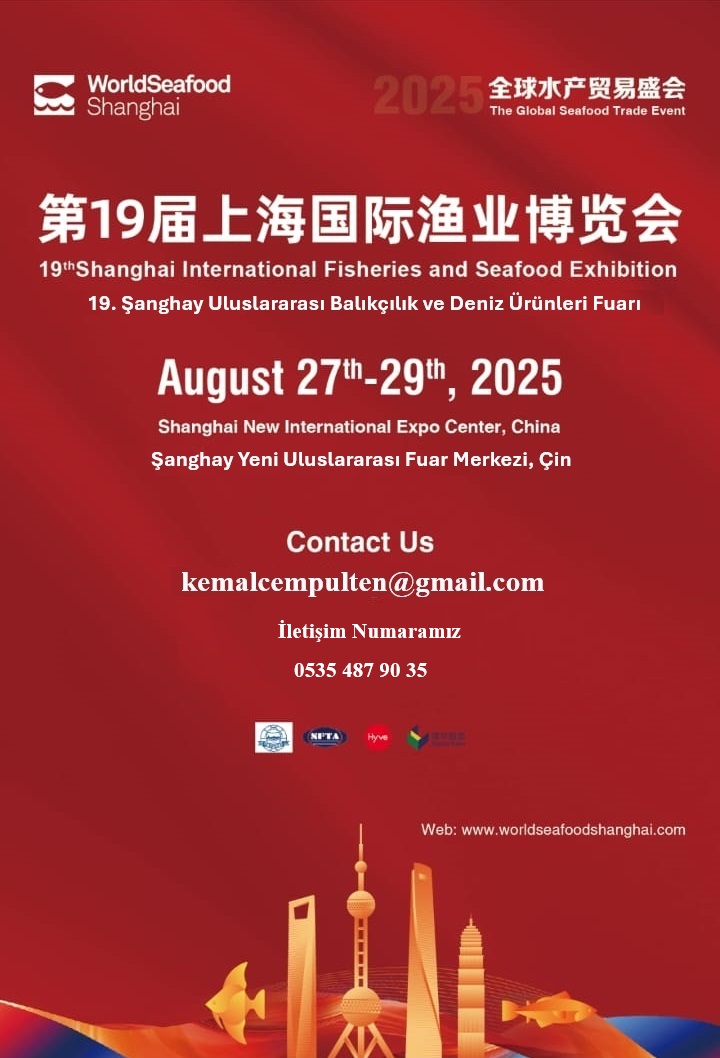
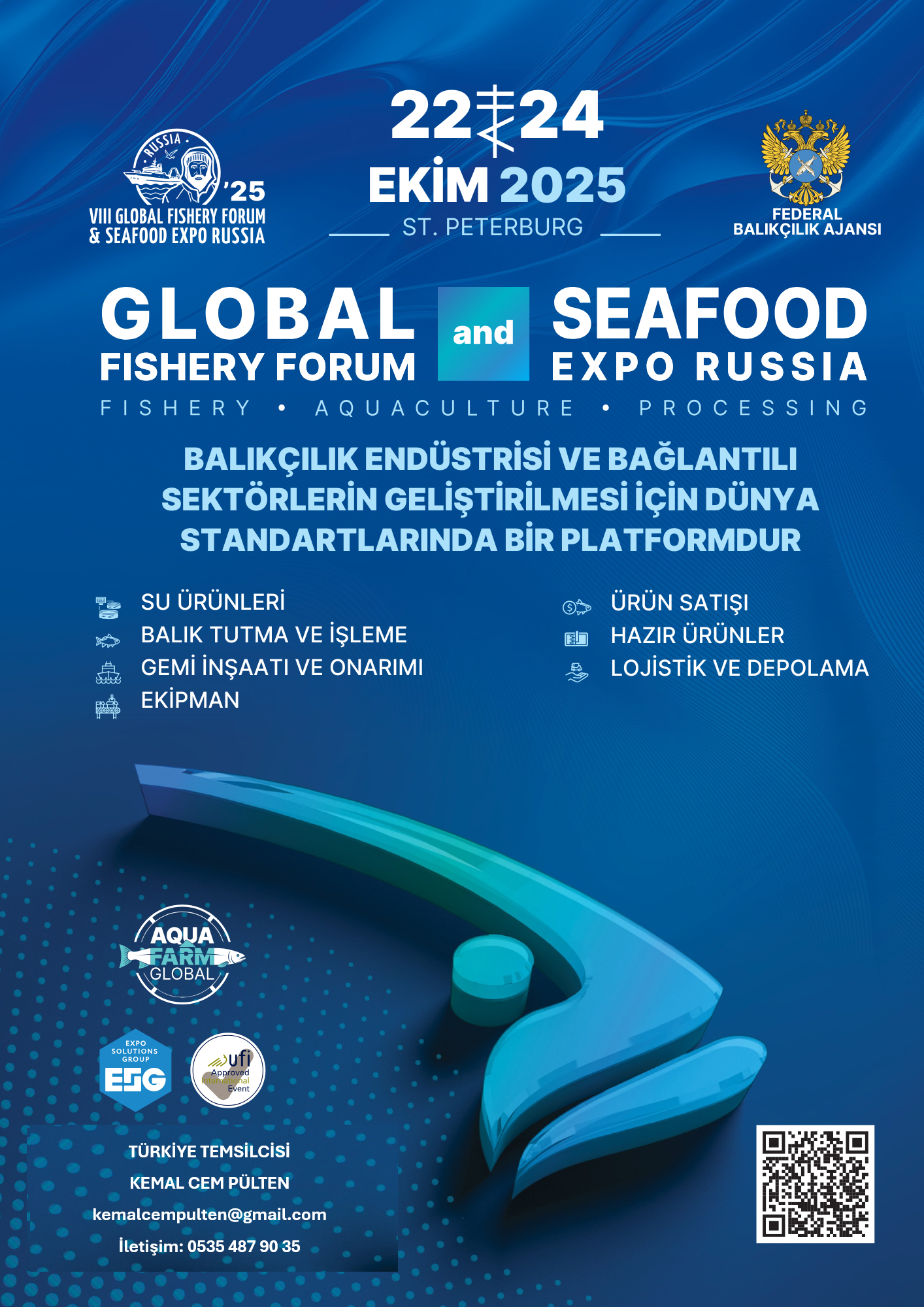






YORUMLAR